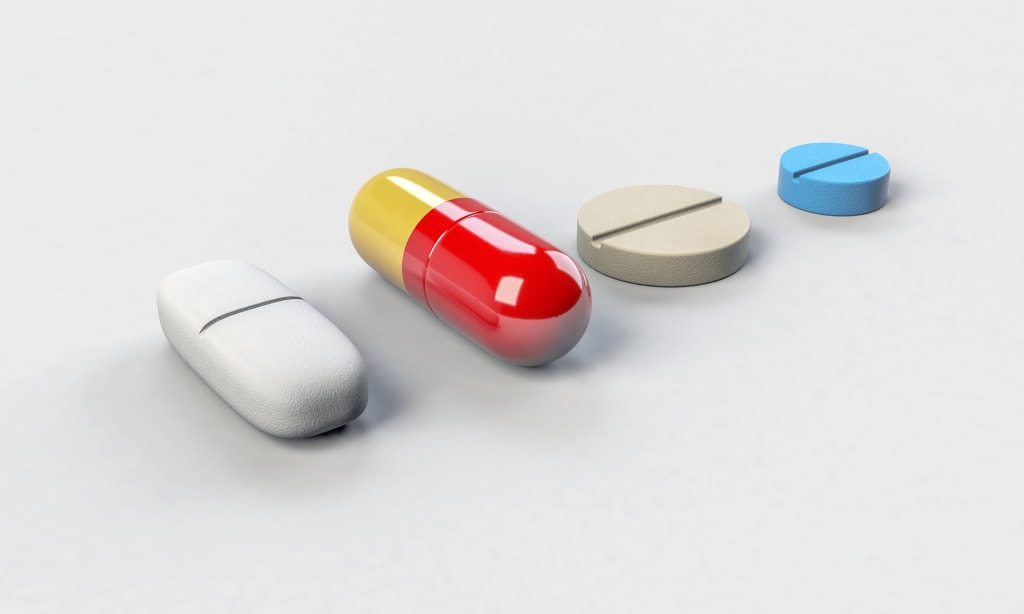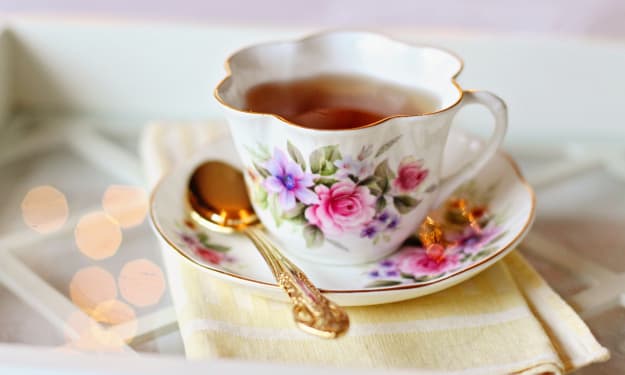11 Realities of Addiction Recovery I Wish Outsiders Understood
A recovering addict reveals 11 less well-known truths based on her recovery experience.

Everything you are about to read is based upon my personal experiences and opinions. I am not claiming that I am an expert or that these are universal truths.
While addiction is a disease and not a choice, recovery is a lifestyle and a choice.
I did not choose to be an addict. I don’t know that anyone would sign themselves up for that life, given the choice. However, I did choose to be a recovering addict. Recovery is a choice that I made for myself. No one forced me into recovery, because no one could have—at least not recovery as a lasting, long term lifestyle—despite their best intentions and most valiant efforts.
If there is someone in your life who is struggling with addiction, please know that they did not choose this lifestyle. But also know that if they are going to begin a recovery journey, they must be the ones to choose that lifestyle.
Recovery has the potential to change people.
If you knew me primarily or solely during my active addiction, this person I am becoming as I travel my recovery journey may frustrate or confuse or even upset you. You may feel that my recovery and/or the recovery community at large are molding me into an entirely different person, one you don’t recognize. In my experience, however, I am simply developing into more of the person I was always meant to be before my addiction stepped in and stunted my growth—more of my true self.
Please be patient with me, though, as I explore and rediscover this stranger I see in the mirror. I promise this entire process is just as frustrating and confusing and even upsetting for me as it is for you, because I can see the changes occurring within myself just as you see them in me. And, while these changes certainly are positive ones, change of any kind, especially in regards to my own behavior, feelings, and worldview, makes me quite uncomfortable (just as I believe it would anyone else).
These changes are frightening despite their positive impact on my life, because I have known the the addicted me—the uncomfortably numb me, the pitifully dysfunctional me, the depressingly sick me—for so long. And I genuinely believed that senseless, scared, sick girl was me and would be me as long as I was breathing. I’m sure you can understand the shock and surprise I have felt as I have grown into a better version of myself, because I sincerely did not know this person existed within me or that development—rather than degeneration—was actually possible for me.
I now have a fresh hope and a new lease on life, and I can’t predict what will happen in my life as I continue to develop and grow; living within this land of the unknown, while a blessing, can be disorienting and truly terrifying. Some days, I honestly don’t recognize the happy young woman staring back at me from within the mirror or the intelligent, thoughtful sentiments being formed by my mind and the confident voice expressing those sentiments or the healthy activities in which I feel my body engaged. And, believe me, that kind of experience is seriously bizarre and unnerving. I am constantly left wondering: Will my friends and family still love and accept me? Will I be able to learn to love and accept this person taking up residence in my body? Will I still be me inside?
However, I feel these changes are worth every out of body experience and every ounce of fear and every bit of anxiety they cause, because my addiction stripped me of my individual identity and my recovery is (slowly but surely) returning to me the gift of myself.
When I tell you I’m a person in recovery, I’m simply trying to give you some more information about myself and provide you an honest peek into my life.
My identity as a person in recovery may explain certain things about my life and my behavior. You may also gain some context for events I’ve mentioned in passing and insight into my lifestyle when I share this part of myself with you. I am not, however, trying to solicit pity or make you uncomfortable.
There are a few things I hope you do not do, some attitudes I hope you do not adopt, after I share my recovery with you… I don’t want you to treat me like a charity case, pitiful and sad. I also don’t want you to treat me like a china doll, delicate and frail, or a monster, out of control and unpredictable. I want to be treated the way you would treat any of your other friends: with equity, with love and understanding, and with respect, because that’s all I am, just one of your friends who just so happens to be in recovery.
Whether we’ve known each other for years or we only met yesterday, my identity as a person in long term recovery does not change the fundamental “me” you know. It simply builds and improves upon that foundation by bringing out the best of me—my finest characteristics and most positive personality traits. In light of this reality, I sincerely hope that sharing my recovery with you does not alter our relationship, because that certainly was not my motive in sharing this personal tidbit with you in the first place.
I don’t believe that I am better than anyone actively using drugs or alcohol, because, in all reality, I’m not.
First of all, I really don’t think I, given my past, have room to judge anyone else for the choices they make regarding substances. That would be some serious hypocrisy, wouldn’t it?
Moreover, I believe all of us, as human beings, are equal. Our behavior, specifically the choice to use substances or to remain abstinent from substances, does not define us. It is the uniquely beautiful and strong spirit inside each of us that truly defines who we are as individuals. We are not better or worse than one another, just different.
In addition, I believe we all have the potential to live healthy and happy lives and that we are all on a journey toward that health and happiness. I also truly believe that we are all doing the very best we can given our individual set of circumstances as we travel this journey. Because I believe we are all doing our best, I don’t think any of us, regardless of how healthy or not-so-healthy our choices may be, can be seen as better than anyone else.
I still like to go out and have fun…
Being in recovery does not make me a wet blanket. I am still a young person, excited to explore the world and discover myself—and to have a good time doing it. I just choose to do so without the aid of drugs or alcohol.
...and, yes, it is possible to have clean and sober fun.
In my experience, having fun while clean and sober is much more exciting and enjoyable than having “fun” while under the influence. I was not a social user, so I usually stayed home alone when I got high. Most of the time, I would sit in my dark bedroom and listen to sad music while wallowing in the depths of my depression and loneliness. I didn’t have strong social skills and I didn’t have any true desire to develop them or to step outside of myself into the real world of society and human interaction because I was afraid. I chose, instead, to live in my soft bubble of familiarity and “safety,” which had very rapidly become a rigid prison from which I simply could not break free. Doesn’t sound too fun, does it?
Now, I have the ability to trust others and create close relationships with them. I have the strength and courage to step outside my comfort zone and take safe risks in order to have a good time and create memories with exciting new experiences. I have the confidence to truly be myself and do the things that, deep down, I really want to do, regardless of what others may think or say. Recovery has given me numerous opportunities to practice these new skills—trust, strength and courage, confidence—as I have gone to places and done things that I never thought I would have the chance to and of which I never thought myself capable. Sounds pretty fun, right?
I have made more true friends, created deeper and more meaningful relationships with these friends, laughed more, and had more exhilarating and life-enriching experiences in my almost two and a half years in recovery than in all five or so years of my active addiction. In a complete 180 degree transformation, I am finally able to live and to feel truly alive.
I don’t throw myself pity parties because of my recovery, because I truly don’t think I’m missing out on much.
In fact, I feel that I have gained so much more than I have lost. All I have really “lost” is the drugs (and the accompanying misery, of course). Now that I am clean, my life is infinitely more rich than it was while I was using. I am building a beautiful life for myself, full of amazing experiences, which I can actually be engaged in, and wonderful relationships, which I can actually participate in with genuine emotion and connection. These are things I wasn’t really capable of during my active addiction; I sat on the sidelines, living a lukewarm life, praying for an end to my self-inflicted misery.
Throwing myself pity parties would only serve to waste my time and distract me from the miles-long list of delightful blessings I have in my life. So, I choose not to throw them for myself, because, while my life certainly isn’t perfect, it certainly is wonderful.
Recovery is not all sunshine and rainbows.
Yes, my life is exponentially better than it was while I was trapped in active addiction. It would have been seriously difficult for things to have gotten any worse than they were during that season of my life.
But, no, my life is not perfect. I still struggle with many of the same demons that fed my addiction: depression, anxiety, low self-esteem, etc. Now, I just have more experience in making the conscious decision to actually fight them, rather than rolling over and playing dead; more fortitude and confidence in my ability to fight them, rather than allowing them to beat me down because of my absolutely consuming fear and my overwhelmingly low self worth; and a true arsenal of tools with which to fight them, rather than struggling with the almost nonexistent collection of resources I had practical experience using before.
And, yes, recovery can be very exciting and involve a lot of fun.
But, no, recovery is not always easy; it requires determination, effort, and dedication. However, the excitement I have the opportunity to experience in recovery, the enjoyment I get out of my many friendships and my interactions with my recovery community, and the freedom given to me by my recovery make all of this work worthwhile.
I think some people believe ending their drug and alcohol use will solve all of their problems and put an end to all of their struggling; I can only speak for myself, but, in my experience, that has definitely not been the case. My life has improved infinitely because of my decision to put an end to my drug use, but everyone has problems—they are part of the human condition. Struggle is simply a part of life and, now that I have accepted this reality and removed the unrealistic expectations I had originally placed on my recovery, I am much happier and much more able to be content with my life as it stands today.
When we go out, you really don’t need to watch me like a hawk or “protect” me from drugs and alcohol.
I understand that if we are particularly close, you may be concerned for my safety and well-being. And I genuinely appreciate your care and concern. However, I am responsible for myself, my well-being, and my recovery. As stated above, no one else can make the decisions of recovery for me; these decisions are very personal and must come from within if they are to become a stable and sustainable, well-rounded way of life.
With that being said, it would be helpful if you demonstrated your respect for my recovery by not directly offering me drugs or alcohol. There is a difference between being overbearing and being respectful, between trying to control me and trying to avoid situations that may make things unnecessarily difficult. It is possible to help me as I safeguard my recovery without making me feel as though I am incapable of controlling myself.
Casually and calmly expressing any concern you may have is fine with me, but, like was stated above, I just want to be treated like any of your other friends, not your pitiful charity case or your delicate china doll or your out of control addict friend you have to keep an eye on at all times, lest she lose control and fall off the wagon. I just want to go out, have a good time, and be myself—not Hannah the weak, not Hannah the fragile, not Hannah the crazy, willpower-less addict, just Hannah, just me.
My recovery journey is my unique journey.
Despite the many similarities we all share, recovering addicts and alcoholics are not the same; in fact, we are a diverse group of unique individuals.
The way I choose to maintain and live out my recovery is my choice. I may belong to, and identify with, a particular recovery group or fellowship, but no one tells me how to live my life. Others in recovery may make suggestions, but they are just that: suggestions. In the end, I am free to make my own choices (and mistakes) and to be my own person.
I’m still sick, but I am making an effort to get better.
Most of all, I want you to know that recovery is not magic; it has not turned me into an angel or suddenly eradicated my flaws. I’m still me, for better or worse. And, just as important to note, I am aware of this reality. I realize that, though I have come a long way, I have a long way to go yet.
However, as much as I am flawed and imperfect, I am also taking steps to improve myself. Every day, I do my best to live according to my truth as a person in recovery and to make positive decisions: ones that are healthy for me and ones that will enhance my life and the lives of those around me.
The final thing I’d like to make crystal clear: recovery is a journey, not a destination. I will never be perfect; I will always be able to improve in some way or another.
About the Creator
Hannah Easop
A blooming wanderer based in Richmond, VA.






Comments
There are no comments for this story
Be the first to respond and start the conversation.